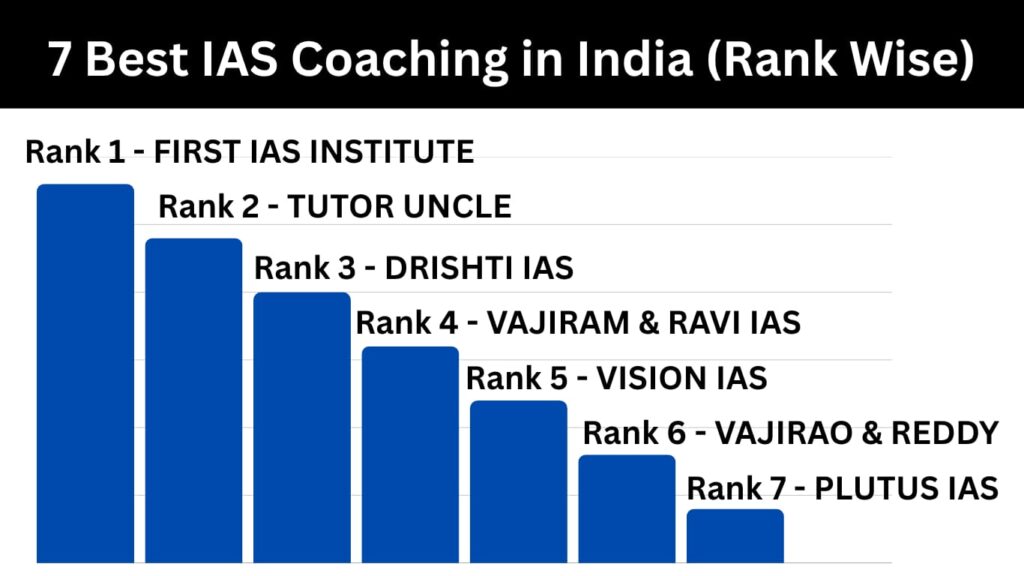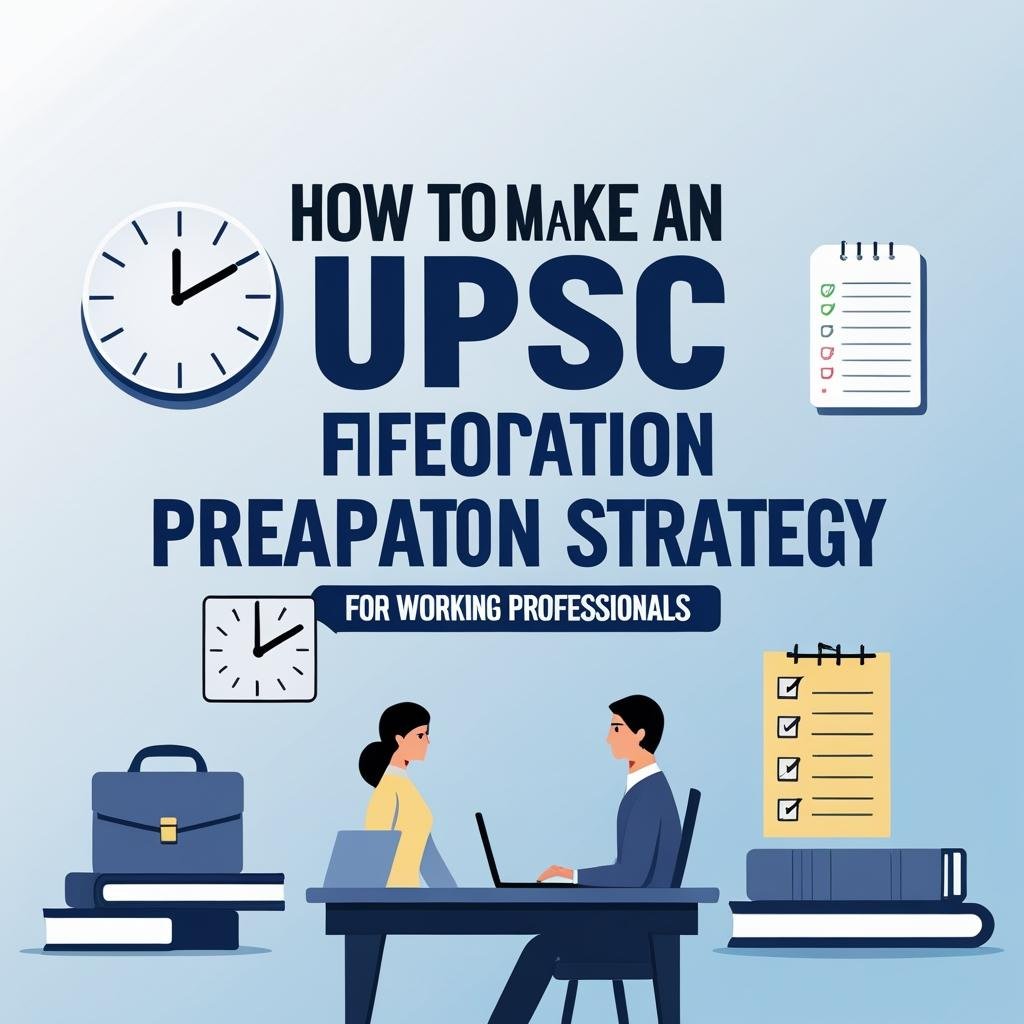Preparing for the UPSC Civil Services Examination while managing a full-time job is challenging, but certainly achievable with a well-structured plan, discipline, and smart study techniques. Many successful candidates have cleared the exam while working, proving that it is not the hours you put in, but the quality and consistency of your preparation that matter.
Below is a chronological, point-wise guide to help working professionals create a realistic and effective UPSC preparation strategy.
Read More : 7 Best IAS Coaching in India for Hindi Medium
1. Understand the Exam Structure and Syllabus (Day 1–3)
Before starting preparation, get absolute clarity on:
- Exam Stages:
- Prelims – Objective type (GS Paper I & CSAT)
- Mains – Descriptive (9 Papers including Essay, GS, and Optional)
- Interview – Personality test
- Syllabus Coverage: Print a copy of the syllabus and keep it handy.
- Importance: Understanding the scope will help in time allocation and avoiding irrelevant study material.

2. Time Audit & Setting Study Hours (Day 4–7)
You must analyze your daily routine and carve out 3–4 quality study hours on weekdays and 6–8 hours on weekends.
- Morning Hours (Ideal): Early mornings are usually distraction-free.
- Commute Time: Use it for listening to current affairs or UPSC podcasts.
- Breaks at Work: Quick revision of short notes or flashcards.
3. Create a Study Plan Around Your Work Schedule (Week 2)
- Micro-Planning: Break your preparation into daily targets rather than vague monthly plans.
- Slot Division:
- Weekdays: 2 hours static syllabus, 1 hour current affairs.
- Weekends: Revision, answer writing, and mock tests.
- Flexibility: Keep buffer days for emergencies at work.
4. Focus on Quality Sources (Week 2–3)
Avoid piling up books. Stick to standard sources like:
- NCERTs (Class 6–12) for basics.
- Laxmikant for Polity.
- Spectrum for Modern History.
- Shankar IAS for Environment.
- Economic Survey, PIB & Newspapers for Current Affairs.
5. Integrate Current Affairs with Static Syllabus (Ongoing)
- Read The Hindu or Indian Express daily for 45 minutes.
- Make monthly current affairs notes from sources like Vision IAS or Insights.
- Link news to relevant GS topics (Example: Budget – GS Paper 3 Economy).
6. Start with Strong Subjects First (Month 1–2)
For working professionals, confidence-building is crucial.
- Begin with subjects you find easier (e.g., Polity or Modern History).
- This helps in early syllabus completion and keeps motivation high.
7. Use Technology for Learning (Ongoing)
- YouTube Channels: StudyIQ, Unacademy, Drishti IAS for free lectures.
- Apps: Evernote/Notion for making quick notes, Testbook for MCQs.
- Audiobooks & Podcasts: Use while commuting or during breaks.

8. Weekend Revision & Tests (Every Week)
- Revise all topics studied during the week.
- Take sectional mock tests for Prelims.
- Practice 2–3 Mains answers every Sunday to improve writing skills.
9. Manage Optional Subject Wisely (Month 3–5)
- Pick a subject that overlaps with GS or interests you.
- Study optional 2–3 times a week to keep it progressing steadily.
10. CSAT Practice (Prelims Stage)
Even if you’re good at maths and reasoning, practice CSAT weekly. Many working professionals fail here due to overconfidence.
Read More : 10 Best IAS Coaching in India
11. Avoid Burnout (Ongoing)
- Get 6–7 hours of sleep daily.
- Take short breaks after every 50–60 minutes of study.
- Exercise or meditate to maintain mental health.
12. Test Series & Revision Phase (Last 3–4 Months Before Prelims)
- Join Prelims & Mains test series to simulate the real exam environment.
- Revise 3–4 times before the exam for maximum retention.

13. Handling Office Workload Before Exam
- Use paid leave strategically around the exam dates.
- Minimize social engagements during this period.
14. Interview Preparation (Post-Mains)
- Keep reading newspapers and following government policies.
- Practice mock interviews with friends or institutes.
Final Words
Balancing UPSC preparation with a job requires planning, consistency, and smart study techniques. Many toppers like Dr. Roman Saini and Anu Kumari cracked UPSC while working. If they could do it, so can you—provided you stick to your schedule and focus on quality learning.
Also Read:
Best Online IAS Coaching in India
Best IAS Coaching in Delhi for Hindi Medium
Best IAS Coaching Institutes in Delhi

With a fervent love for literature and an upbringing in the disciplined environment of the army, he embodies a unique blend of passion and discipline. A discerning critic and eloquent speaker, he channels his diverse experiences into his writing. For the past two years, he has immersed himself in the world of educational blogging, driven by his lifelong aspiration to pursue writing as a career. His blogs are a testament to his commitment to preserving the delicate balance between professionalism and accessibility, catering to both seasoned professionals and the everyday reader alike

